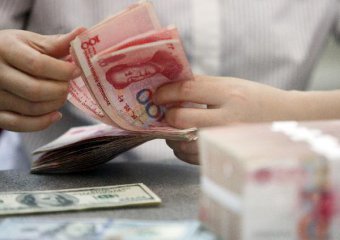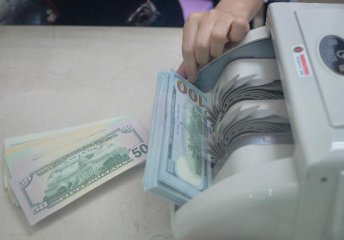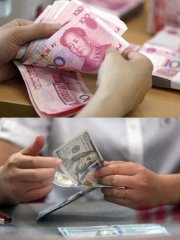
China’s forex reserves stood at 3,005,124 million U.S. dollars by the end of February, up 6,900 million U.S. dollars from a month earlier and expanding for the first time in nearly eight months, according to data released by the People’s Bank of China (PBOC) yesterday. The rebound came after January's decline sent the country's forex reserves below the closely watched 3-trillion-dollar mark.
Officials from the State Administration of Foreign Exchange (SAFE) indicated in a press conference that China’s cross-border capital flows maintained balanced in February. Major currencies continued to weaken against the greenback, but the asset price hiked. The currencies and assets invested with forex reserves diversified the effects. As a result, China's forex reserves tend to stabilize despite fluctuations.
The effect of forex rate conversion is about -15,600 million U.S. dollars in February, estimated Xie Yaxuan, chief macro analyst from China Merchants Securities Co., Ltd. (600999.SH). The actual forex growth released by the PBOC is 22,500 million U.S. dollars after taking into account the factor, compared with -39,300 million U.S. dollars in January. The indicator recovered significantly while it remained negative for seven consecutive months.
The PBOC has been the supplier to the demand-supply gap in the forex market since the reform of the forex rate on Aug. 11, which is attributable to the structure of the forex held by China, Xie further pointed out. As the expectation on RMB devaluation stabilized since 2017, the supply and demand in the forex market has improved. The supply and demand in the forex market was balanced in February and no liquidity from the central banks is needed, which also contributed to the increase in the forex reserves.
The rising forex reserves in February also attributed to the price of assets. The yield rates of U.S. EU and Japanese bonds declined in February, which drove the price of bonds higher and the valuation of forex reserves also increased, indicated Deng Haiqing, chief economist of JZ Securities. Xie also pointed out that the rising forex reserves in February may also be caused by the valuation fluctuation of reserved assets, the interest of bonds and the dividend revenue. The former contributed an increase of approximately 8,000 million U.S. dollars in forex reserves after simple estimation.
The rising forex reserves in is mainly a result of the easing pressure on RMB devaluation and the expectation on devaluation as well as the slower capital outflows (pending the certification with the statistics on forex settlement and sale), indicated Liu Jian, senior researcher at financial research center of the Bank of Communications. The U.S. Fed is more likely in raise the interest rate in March, but the RMB exchange rate remained stable, which shows that RMB is strengthened under the background with improved fundamentals of China’s economy, prudent and neutral monetary policies and strengthened macro prudent management. As a result, despite that the possible rate hikes by the U.S. Fed may increase the pressure on RMB devaluation, the overall capital outflows are under control.
Xie believes that under the market-based forex reform, the fully free floating of forex rate is increasingly possible. The forex reserves will see fewer systematical increases or decreases. The government work report proposed that “China will follow the orientation of the market-based forex reform”. It means that the central bank will reduce the intervention with the forex market. It will rely on the forex market to achieve the fully free floating of RMB exchange rate.
The government work report also pointed out that “China will maintain the stable position of RMB in the global currency system”. Yi Gang, deputy governor of the PBOC, told SSN that RMB was officially included in the SDR. The actually effective and nominal exchange rates of RMB have appreciated in the past decade, but it maintained stable on the whole. With the advancing of the internationalization of RMB, RMB will be used in more trades and investments, which is fully driven by the market. On the overall, the position of RMB in the international currency system will be more stable.
Translated by Star






















Latest comments